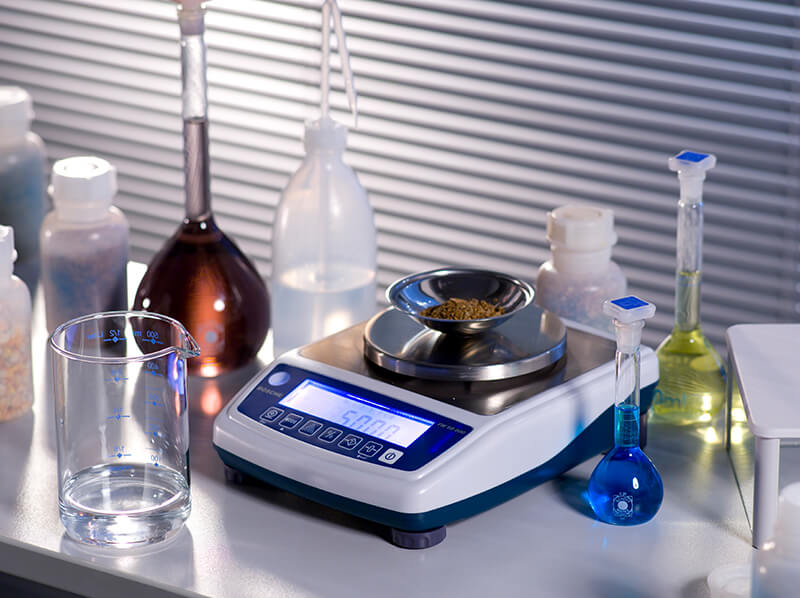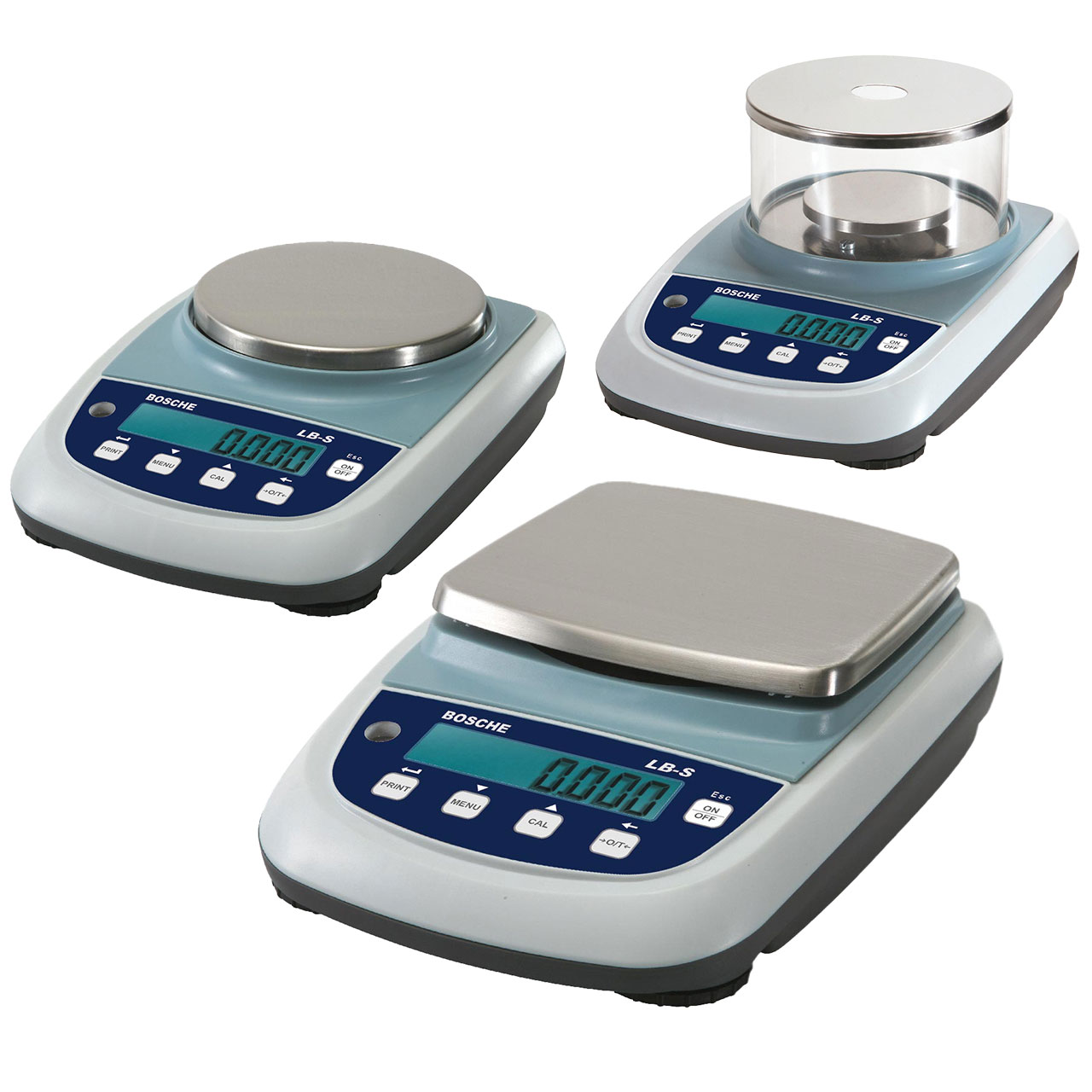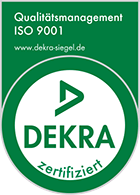How is an Analytical Scale Constructed?
The digital analytical scale is constructed based on the principle of a platform scale. The weighing platform is situated on a sturdy plastic housing with a keypad. The digital display is usually illuminated and easily readable due to a large presentation. With simple leveling through the feet and an integrated bubble level, the scale can be quickly adjusted to a new location. As these scales are used both in laboratories and under more demanding conditions, they are constructed to be suitably robust and meet the IP54 protection class. Generally, the membrane keypad is water and dustproof, allowing for applications in cleanroom environments as well.
What is the Weighing Range of an Analytical Scale?
Before purchasing an analytical scale, you should know the weighing range the scale should cover. The weighing range defines the range between the smallest and largest measurable weight. The weighing range, commonly referred to as the weight capacity, of an analytical scale is often in the single-digit kilogram range or below. Precision scales are highly accurate and can provide precise measurements in the 1/10 gram range.
Calibration of an Analytical Scale
During the calibration of a scale, the scale's accuracy is checked using a calibration weight of a known mass. This can be done automatically with built-in weights for some analytical scales or manually. For calibration, the scale is operated for approximately 30 minutes before calibration. The temperature of the calibration weights should match the temperature at which calibration will take place. Subsequently, reference weights (standard weights / calibration weights) are placed on the weighing platform, and the deviation of the scale is determined based on the displayed values. This deviation from the standard value is then documented in a certificate or report. This also marks the completion of the calibration process. If the deviations are too high, the scale should be adjusted by a professional.
Applications of an Analytical Scale
Thanks to their high accuracy, analytical scales have diverse applications, including:
- In laboratories for experiments or formulation production (e.g., cosmetics) to ensure reproducibility.
- In industries for counting small parts with low weight, inventory management, and monitoring.
- At jewelry shops or in trade with jewelry and precious metals.
- In gastronomy, when weighing exclusive ingredients.
- Hobbyists use analytical scales to optimize their airplane models, as a few grams of weight reduction can lead to longer flight times.

Accuracy of Analytical Scales and Calibration
The precision at which a scale measures can also be referred to as accuracy. This value is not fixed and can fluctuate. Often, precision is tied to the price and quality of a scale. Some precision scales can reach a value of 0.0001 gram. This means that these scales can measure with a precision of 0.0001 g, accurate to a milligram. Typically, scales with a range between 0.1 and 0.01 grams are sufficient. This range is suitable for model builders or coin collectors with a typical weighing range between 0.2 and 300 grams. If specific needs require weighing ranges below 0.2 grams or above 2,000 grams, the selection of scales on the market might be limited.
Under specific conditions, scales are subject to calibration requirements. This naturally applies to precision and analytical scales as well.
Calibration is mandatory for scales in the following cases:
- When used for weighing goods or products to determine their price
- When used in the medical or pharmaceutical field for the production of medicines
- When serving official purposes
- When used in the production of pre-packaged goods
After inspection by the calibration authority, the scale receives the appropriate calibration mark. This confirms the accuracy of the tested measuring instrument within permissible calibration tolerances. This is valid for all member states of the European Union (under EU calibration).
Minimizing External Influences on Weighing Results
Especially in the milligram range, even a breath or a slight breeze can distort weighing results. Therefore, precision scales are often equipped with a windscreen that shields the weighing platform from external influences. With the windscreen in place, the impact of environmental factors on weighing results can be virtually eliminated.
Buying an Analytical Scale - What to Consider?
First, consider how the future application of your scale will look. For commercial use, it's important that the scale is calibrated or capable of being calibrated. For purely private use, such as a hobby like model building, an affordable analytical scale is sufficient. Also, think about what units of measurement the scale should display. In addition to grams, there are models that can display milligrams, carats, or ounces. Displaying item counts can be useful when working with gemstones and coins. Consider any necessary accessories such as weighing pans or similar containers.
Our Bosche analytical scales offer high measurement accuracy and sturdy construction. They are visually appealing and boast a long lifespan. We are happy to advise you on your future analytical scale purchase. And even after your purchase, we are available to assist you with any questions or issues you might have.









